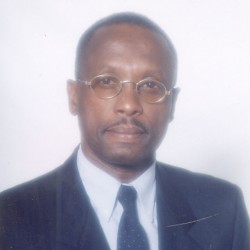The APNU+AFC government should use the opportunity it now has to quickly break the back of political majoritarianism and bring the opposition PPP/C into a “general compromise”, according to commentator Dr Henry Jeffrey.
Writing in his June 3rd Future Notes column in Stabroek News, Jeffrey said that while the May 11th general elections brought about a change it didn’t create the level of national cooperation required for the country to really take off.
“Our political system remains a majoritarian one and the coalition is in office with the slimmest of majorities and needs to be very careful. Its expectations of wrenching significant ethnic Indian support away from the PPP to provide an opening for it to build an independently genuine movement of national unity did not materialise. This was not totally unexpected, and even if a significant shift of support from the PPP had taken place, the task of establishing a national movement without PPP support would still not have been easy”, he stated.

He said that the elections threw up an African Guyanese leader, David Granger, facilitated by the strongest ever electoral participation by African Guyanese, who had committed to constitutional reform that will ultimately lead to a government of national unity comprising all the major ethnic groups.
Jeffrey, who served for many years as a PPP/C minister and also held positions with the PNC, said that at a minimum the May 11th elections should have presented the public with a picture of “the two leaders (the PPP leader, even if he is somewhat uncertain about constitutional reform but also with his community at his back) linking hands in the interest of the county”.
This would have immediately spoken to the real concerns of many of those of Indian ethnicity and thus provided a positive opening, he asserted.
“As we have seen during the last elections, an important aspect of PPP propaganda was to present the PNC and its African supporters as largely elections manipulators and power grabbers. This belief permeates the world view of many PPP supporters and upon it rests much of the persistent demand for an apology from the PNC and its various transformations.
“The image of a cooperative leadership would have immediately begun to erase this historical view and open the way to real national reconciliation. Instead, the PPP’s position that it was cheated has effectively robbed us of this opportunity and only serves to reinforce a viewpoint that is inimical to national togetherness”, Jeffrey stated.
He said that he believes that the way forward is for more Guyanese to stop focusing on finding ways to stop people from voting for their ethnic group and begin trying to frame a democratic political system that will prevent ethnic voting.
He ventured that the real problem in Guyana is that all efforts so far to address the ethnic problem have been exercises in folly and no political arrangements have been established that will properly curtail the possible negative implications of ethnic political participation.
“More than most, Cheddi Jagan understood the need to unite the nation. He lost his first government largely because he placed his ideology ahead of nation building and was kept in the political wilderness for three decades. His return to government was also plagued by ethnic-type disturbances of various sorts. In my opinion, he had both genuine and political interests in solving the problem, but his methods in attempting to do so, though tempting to the less discerning, was utopian to say the least. As an example, he attempted to circumvent the ethnic African/PNC political elite and formed many community groups with broad ethnic membership, in the hope of winning cross-ethnic support”, Jeffrey stated. He argued that the late President Desmond Hoyte stopped the ‘banning’ of sought-after consumer goods, opened the political system including the media, and embarked upon economic reforms that led to growth and were bound to benefit the Indian business elite.
“In order to show that he cared for those of Indian ethnicity, he even succumbed to ethnic self-projection by indicating that others referred to him as Desmond Persaud: all of this to no avail”, Jeffrey said.
Stating that he believed that the opposition PPP/C should and will take its place in parliament, Jeffrey said that this would not in itself ease the problems and improve political cooperation. He said it would simply provide the PPP/C with an additional forum in which to press its case.
“Unless the PPP is brought into a general compromise, parliament being majoritarian, it will allow the coalition to pass most of its controversial legislation without PPP support. This will provide additional grist for the PPP’s propaganda mill without preventing that party from taking such extra-parliamentary action it deems necessary.
“I began by noting that the APNU+AFC government needs to be very careful. This is because in my view it would be pure folly and dangerous to the interest of its supporters for it to continue to play majoritarian politics and risk the total loss of its new-found power”, Jeffrey said.




